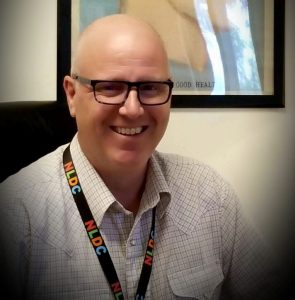Earn CEUs with Recorded Webinars
- Watch the recorded webinars below.
- After watching the webinar, click here to complete an online form to request CEUs.
- We will verify that you watched the recording and then email you a CEU certificate.
 Here’s your chance to catch one of our most popular speakers, our Residential Program Manager, Tom Beckers, LADC, Certified Brain Injury Specialist!
Here’s your chance to catch one of our most popular speakers, our Residential Program Manager, Tom Beckers, LADC, Certified Brain Injury Specialist!
On Friday, April 24, 9-11 a.m. he will be presenting for Wayside’s Friday Forum –on “Co-occurring Substance Use Disorders, TBI’s and other, Cognitive Deficits.”
Registration – $25 for professionals and $10 for Students and Interns.
Register at https://waysiderecovery.org/friday-forum-series
This presentation will focus on how to work with populations that suffer from cognitive deficits. Through anecdotes, best practices and experiential activities, the participant will establish a base knowledge of how to engage and work with adults in order to increase skillful behavior around managing their co-occurring disorders.
Objectives:
- Participants will be able to identify aspects of cognitive deficits.
- Participants will learn how to effectively deploy skills-based groups.
- Participants will understand ways to modify treatment delivery.
 Tom Beckers, LADC, CBIS, has worked in the field of chemical health/substance use disorder treatment for 15 years. For the last 13 years he has worked with adults at Vinland National Center, a 61 bed, residential, substance use disorder treatment program located in Loretto, MN in Hennepin County, specifically serving those suffering from substance abuse and cognitive deficits. He has provided professional and community-based trainings on topics related to the field of substance use disorders and brain injury, partnering with entities such as the University of Minnesota, the Brain Injury Alliance of Minnesota,, and statewide social service and substance use disorder conferences. He has co-authored a curriculum that adapts mindfulness practices for people with cognitive deficits and is sited as a co-contributor on a published research study that examines the effects that a mindfulness practice has on people who are suffering from cognitive deficits/TBI and substance use disorders.
Tom Beckers, LADC, CBIS, has worked in the field of chemical health/substance use disorder treatment for 15 years. For the last 13 years he has worked with adults at Vinland National Center, a 61 bed, residential, substance use disorder treatment program located in Loretto, MN in Hennepin County, specifically serving those suffering from substance abuse and cognitive deficits. He has provided professional and community-based trainings on topics related to the field of substance use disorders and brain injury, partnering with entities such as the University of Minnesota, the Brain Injury Alliance of Minnesota,, and statewide social service and substance use disorder conferences. He has co-authored a curriculum that adapts mindfulness practices for people with cognitive deficits and is sited as a co-contributor on a published research study that examines the effects that a mindfulness practice has on people who are suffering from cognitive deficits/TBI and substance use disorders.
